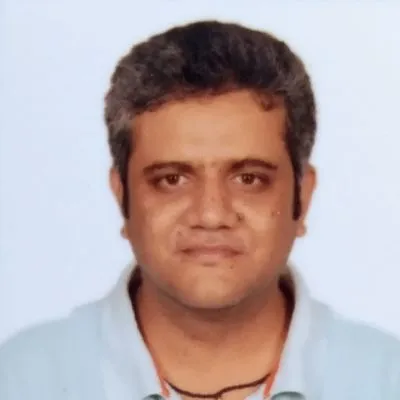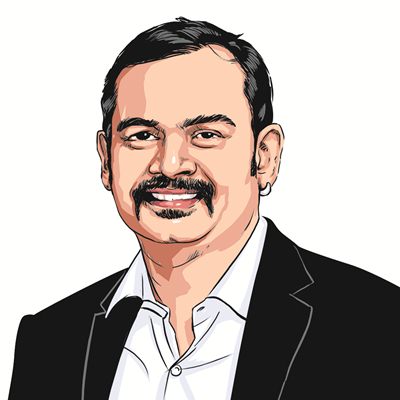No ceasefire pressure, paused Operation Sindoor as targets met: Govt; Opposition raises US role
India would again give a befitting reply to Pakistan if it sponsors any other terror attack, as a “new Lakshman Rekha has been drawn”, says Defence Minister while initiating a debate on Op Sindoor
 Rajnath explained the ceasefire after four days of hostility, saying, “Operation Sindoor was halted because we had fulfilled our objectives." (ANI Photo)
Rajnath explained the ceasefire after four days of hostility, saying, “Operation Sindoor was halted because we had fulfilled our objectives." (ANI Photo) Strongly denying any link between the trade talks with the US and the ceasefire with Pakistan, the government told Lok Sabha on Monday that there was no pressure to pause Operation Sindoor, and that it was halted only because “we had fulfilled our objectives”. The operation will resume if Pakistan again tried “any misadventure”, it said.
Initiating a 16-hour special debate in the House on Operation Sindoor and the April 22 Pahalgam terror attack, Defence Minister Rajnath Singh underlined that Operation Sindoor has been paused and has not ended and that India would again give a befitting reply to Pakistan if it sponsors another terror attack, as a “new Lakshman Rekha has been drawn”. He asserted that India would not accept any nuclear blackmail as well.
Referring to the ceasefire announced between India and Pakistan after four days of the military action, Singh said, “Operation Sindoor was halted because we had fulfilled our objectives. To say it was done under any pressure is wrong. The aim was not to capture territory but to destroy their terror nurseries. The aim was not to go to war… Pakistan accepted defeat and requested that hostilities be stopped…We accepted with a caveat. If Pakistan attempts any misadventure we will again begin this operation.”
Taking part in the discussion, External Affairs Minister S Jaishankar sought to dismiss the Opposition’s questions on US intervention in the ceasefire. “I want to make two things very clear: at no stage in any conversation with the US was there any linkage with trade and what was going on. Secondly, there was no call between the Prime Minister and President (Donald) Trump from April 22 [the day Pahalgam attack took place] – when President Trump called up to convey his sympathy — till June 17, when he called up the PM who was in Canada, (and) explained why he (Trump) could not meet him,” Jaishankar said.
President Trump has repeatedly claimed that he got India and Pakistan to agree to a ceasefire in May using the trade deal with the US as leverage. India has consistently denied the claim. Jaishankar reiterated that the call for the cessation of hostilities came from the Pakistan DGMO. He also said it was a success of India’s diplomatic efforts that The Resistance Front (TRF) – a proxy of Lashkar-e-Taiba that claimed responsibility for the Pahalgam attack – has been designated as a global terrorist organisation by the US.
As Opposition MPs repeatedly interrupted Jaishankar’s speech, Union Home Minister Amit Shah intervened to say that the Congress appeared to give more weight to foreign narratives than to the statement of India’s External Affairs Minister. “Do you not trust your own Foreign Minister, who has taken a constitutional oath?” Shah asked. “It’s unfortunate that they don’t believe what India’s Foreign Minister is saying but are quick to believe narratives from abroad. I understand that the word ‘foreign’ holds value in their party’s name — but that doesn’t mean it should override national interest.”
Defence Minister Singh, during his address, also targeted the Opposition. Taking a dig at it for asking questions regarding losses to the IAF during the operation, he said, “In any exam, the result matters. We should see whether a student is getting good marks in an exam and not focus on whether his pencil was broken or his pen was lost.”
“The Opposition asks about planes shot down. Their question does not represent India’s sentiments. They have not yet asked how many Pakistani planes were shot down. They should ask: did India destroy terror bases? Yes. Was Operation Sindoor successful? Yes. Were the masters of terrorists who wiped off sindoor from the foreheads of our sisters destroyed? Yes. Did our soldiers face any losses? No,” Singh said. “Focus on big things, not small ones – else we lose focus on big issues and the honour of our soldiers.”
“We asked in 1962 why another country captured part of our territory. We asked why we lost. We did not ask how many machine guns were damaged. We asked about territory, not equipment. In 1971, Atal Bihari Vajpayee praised the leadership of that time. We did not ask how many Indian planes fell or equipment got damaged in the process of teaching the enemy a lesson,” he said.
Singh said that as per an estimate of the military action, more than 100 terrorists were killed in the strikes at the terror hubs across the border.
Singh said India always wanted peace with its neighbours, as it is part of its civilisational values. He recalled Vajpayee’s attempts for peace, and then the break-out of Kargil War in 1999, when Pakistan did not understand the language of peace. Singh said Prime Minister Narendra Modi also started with his attempts for peace and visited Nawaz Sharif in Lahore, but since Pakistan did not understand the language of peace, India undertook a surgical strike in 2016, an air strike in 2019, and Operation Sindoor in 2025.
He expressed disappointment that the previous Congress-led UPA government did not do any such thing after the 2008 Mumbai terror attack. Under the Modi government, he said, “dossiers have been replaced by decisive actions”.
Singh likened the policy of the Modi government to the strategy of Lord Ram and Lord Krishna. “We haven’t occupied any territory. We also know that one should fight only equals. Lions should not kill frogs – the message it sends is not good. Our Army is a lion. Pakistan is nowhere close to us in size or strength. What competition do we have with them? They are reliant on others for aid. Our strategy is against terrorism emanating from there,” he said. “We have learnt from Krishna that one can forgive Shishupala 100 times but the Sudarshan Chakra must be used to protect Dharma. Now we have decided to wield the Sudarshan Chakra. Our policy is based on the strategy of Ram and Krishna, which teaches both dhairya (patience) and shourya (valour). Pakistan did not understand what we were saying; so, we will answer them in this way.”
“Our stand is clear that terror and talks cannot co-exist. A country that has no democracy, sponsors terror, and hates India cannot be engaged in dialogue. Blood and talks do not go together,” he said. “Pak-sponsored terrorism is not random madness; there is a method in this madness. It is a toolkit against every civilised code of conduct. Our fight against Pakistan is the contest between civilisation and barbarity.”
He said there was a global condemnation of the Pahalgam attack, adding that he refused to sign a draft statement at the Shanghai Cooperation Organisation (SCO) meet in China that omitted a reference to Pahalgam. “Our PM went to Brazil for the BRICS summit and created magic. The joint declaration that came out of the meeting in presence of China condemned the terror attacks in J&K.”
He said the UPA government could not make the 26/11 Mumbai terror attack a global issue. “Pick up the BRICS documents of the time in which there is no mention of Mumbai attacks,” he said, adding that the then government failed to take effective action against Pakistan.
“Pranab Mukherjee has written in his book ‘The Coalition Years’ that India had evidence that Mumbai attackers had come from Karachi port. He has written ‘Amid heated debates in the Cabinet, there was demand for military action which I rejected’,” Singh said.
Underlining that the multi-party delegations sent across the world after Operation Sindoor did remarkable work, Singh expressed gratitude to all political parties for standing united with the government during Operation Sindoor keeping aside all ideological differences. “This is the beauty of our democracy,” he said.





